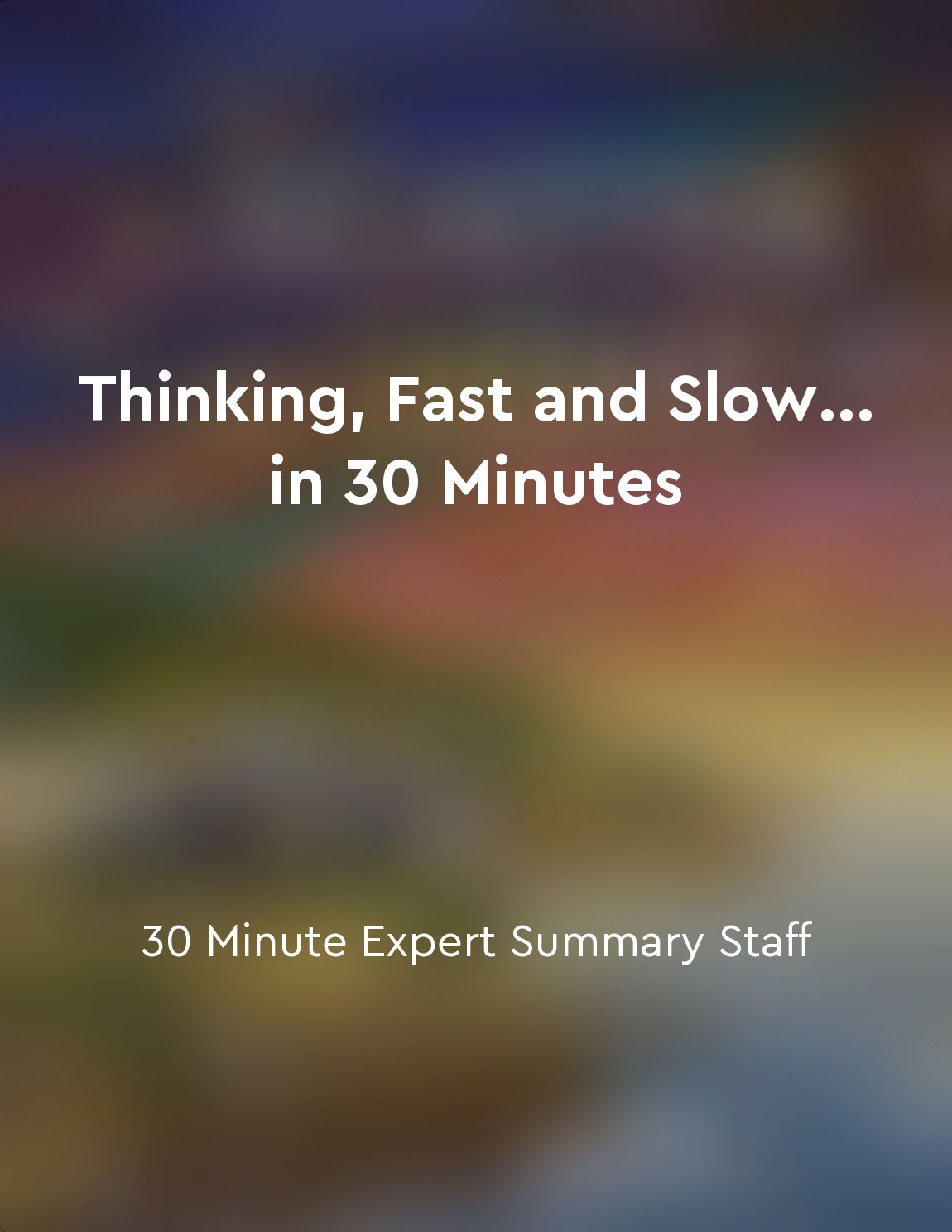Availability bias skews perceptions from "summary" of Thinking, Fast and Slow... in 30 Minutes by 30 Minute Expert Summary Staff
Availability bias skews perceptions refers to the tendency for people to rely on information that is readily available to them when making decisions or forming judgments. This bias occurs because people often place more importance on information that is easily accessible in their memory, rather than considering all relevant information equally. When information is easily retrievable from memory, it tends to be more salient and therefore more likely to influence a person's thinking. This can lead to distorted perceptions and judgments, as individuals may overestimate the frequency or likelihood of events that are more vivid or memorable, even if they are not actually representative of reality. For example, if someone recently read a news article about a shark attack, they may become more fearful of swimming in the ocean, despite the fact that shark attacks are extremely rare. This is because the vividness of the news story makes the risk of a shark attack more available in their mind, leading them to perceive the danger as greater than it actually is. Availability bias can also be influenced by the media, personal experiences, and cultural factors. For instance, repeated exposure to negative portrayals of a particular group of people in the news may lead to biased perceptions of that group. Similarly, individuals who have had a personal experience with a specific event or outcome may be more likely to believe that it is common or likely to occur.- Availability bias can skew perceptions by causing individuals to rely too heavily on information that is easily accessible in their memory, rather than considering a more comprehensive range of evidence. This can lead to inaccurate judgments and decisions, as well as reinforce stereotypes and misconceptions. By being aware of this bias and actively seeking out more diverse sources of information, people can strive to make more informed and balanced judgments.
Similar Posts
Focus on longterm outcomes
When it comes to managing money, focusing on long-term outcomes is crucial. This means looking beyond short-term gains or losse...
Emotions play a crucial role in decisionmaking
In the realm of decision-making, emotions wield a significant influence, often playing a pivotal role in the choices individual...
Communication is key to building relationships
The bedrock of any relationship is communication. It is the glue that binds individuals together, allowing them to connect on a...
Engaging in reflective thinking can enhance cognitive awareness
Reflective thinking involves taking the time to contemplate and analyze our own thoughts and actions. By engaging in reflective...
Our upbringing shapes our money mindset
As we journey through life, our relationship with money is significantly influenced by our upbringing. The environment in which...
Cultural diversity enriches human experience
The vast array of cultures that have flourished across the globe represents a kaleidoscope of human creativity and ingenuity. E...

Mental manipulation can be subtle
Mental manipulation can be subtle, often going unnoticed by the victim until it's too late. The manipulator knows how to play o...
Our social connections are essential for our sense of belonging
Belonging is a fundamental human need, deeply ingrained in our psyche. From the moment we are born, we crave social connections...
Understanding your own insecurities can help you overcome them
By recognizing and acknowledging our own insecurities, we can take the first step towards overcoming them. This self-awareness ...
Cultivating a growth mindset can lead to clearer thinking
Having a growth mindset is crucial for achieving clarity in our thinking. When we believe that our abilities and intelligence c...


